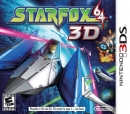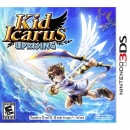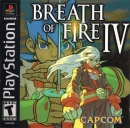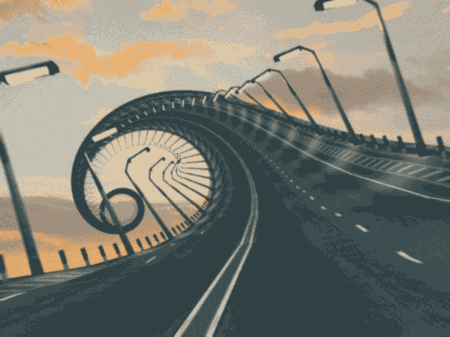| StarDoor said: This is heavily flawed reasoning. It's like saying that, because Uncharted 2 was a direct sequel to Uncharted, only people who played the first will buy the sequel. Clearly, this did not happen, as the sequel sold better than the original. The overlap of people buying games of the same IP is not 100%. |
Uncharted was different to those established franchises, Uncharted used to be a growing IP in the last generation but can the same be said for many of Nintendo's existing IPs ? (Nintendo IPs declined going from WII/DS > WIIU/3DS, remains to be seen if it will increase going from WIIU/3DS > Switch)
| StarDoor said: First of all, FireRed/LeafGreen weren't their own generation. The GBA only had one generation of Pokémon games based on Ruby/Sapphire. Second of all, it's quite premature to declare that Sun/Moon sold less X/Y when Sun and Moon released less than a year ago and are still on the market. According to Nintendo's financial reports: Pokémon X/Y: 16.15 million (+40k) The difference is less than half a million, and Sun/Moon will only close the gap from here. Finally, you're still making the assumption that every single person who bought Sun/Moon also bought X/Y, but that's not how sales work. From my personal experience, some of my friends only ever bought Omega Ruby/Alpha Sapphire, and not either of the main games. Similarly, some of my friends got X/Y and ORAS, but not SuMo. And some of my friends bought a 3DS in 2016 just for SuMo. Games of the same IP can have different audience appeal. I know it may seem strange from our enthusiast perspective, but most people don't buy every single game in a series. SuMo pushed 3DS sales, and it's easy to see this because the 3DS was actually up year-on-year in 2016 according to Nintendo's shipment data. |
But even after discounting FireRed/LeafGreen, the trend is the second iteration sells less than the first release on the same platform so that basis doesn't change ...
I don't assume that literally EVERY single person who has bought the current Pokemon games to have bought previous Pokemon games but I do imagine that Pokemon games have a fairly high retention rate of 80+% going into the next releases and the changing demographics behind Pokemon's audience seems to match my assertion as Pokemon customers are growing older ...
Games of the same IP having different audience appeal is not new ... (as demographics and content keep changing so do the customers as well)
| StarDoor said: If the 3DS is about to pass 70 million on the strength of the IPs I listed, in what world is the Switch going to sell only 40 million despite being better hardware with better software support? The Wii sold 101 million and the DS sold 154 million because of Nintendo's support, and that was when they had to split their resources in half. Now they don't even have that handicap. They could put all of the 3DS + Wii U IPs on Switch and still have plenty of time to spare for new IPs. |
Did I claim that the Switch was only going to sell 40M units ?
"40M units sounds like it's obviously in the cards at this point but by the end of 2019, we'll have seen the majority of what the most the Switch already has to offer with existing IPs ... "
No, you misunderstood since you didn't take the time to interpret the context of my statement as 'the Switch will sell a minimum of 40M units' ...
Well as for the downsides the Switch still has a pricetag of $299 (maybe in the future it could be $249 with the Switch mini) but I guess that's not a realistic concern since Nintendo has a monopoly on portable gaming and better software support is arguable since the Switch has gotten more powerful and Nintendo has to deal with a new microarchitecture which adds cost to game development ...
| StarDoor said: It seems to me that the reason you're so pessimistic is because you personally don't like the Switch. I don't have an issue with you having your own preferences, but it doesn't make sense to base your predictions on your feelings instead of on observable reality. The reality is that the Switch is experiencing a wildly more positive reception than the 3DS, outperforming it in the same timeframe in both sales and game library. The Switch's advantage in game library will only grow with time, so it is only logical that the sales lead will increase as long as stock allows it. This year will likely be close thanks to the parts shortage and Nintendo's conservative production capabilities, but next year the Switch will leave the 3DS in the dust. Nintendo could make 26 million Wii consoles and 30 million DS consoles in a single year. I don't know if the Switch will reach quite those numbers, but it doesn't need to. All it needs is a full, six-year lifecycle. I don't remember who first used this kind of progression, but it sums up the situation perfectly: Imagine Splatoon on 3DS. As Rol has so eloquently stated, time will prove me (and him) right. |
What ? LOL, don't just accuse others of partisanship in your argument otherwise you're the one putting feelings on the line instead of your opposition ... (Are you really going raise someone else's preferences, feelings and even go as far as to implicate their possibly in delusion even though someone as diligent as me took time out of their day to cross reference information ?)
It still remains to be seen if the Switch will keep up the 3DS's price advantage and software potential (drought was an issue on 3DS but once the software was sorted out it picked up pace but the Switch doesn't have this issue) ...
Nintendo handhelds usually have 5 year life cycles so next generation will coincide nicely with the release of the successor to PS4/X1 in 2021 and the successor to the Switch in 2022 ...






































 (can't really strike an invisible man such as myself but I do have some very hard questions for the Switch)
(can't really strike an invisible man such as myself but I do have some very hard questions for the Switch)




















